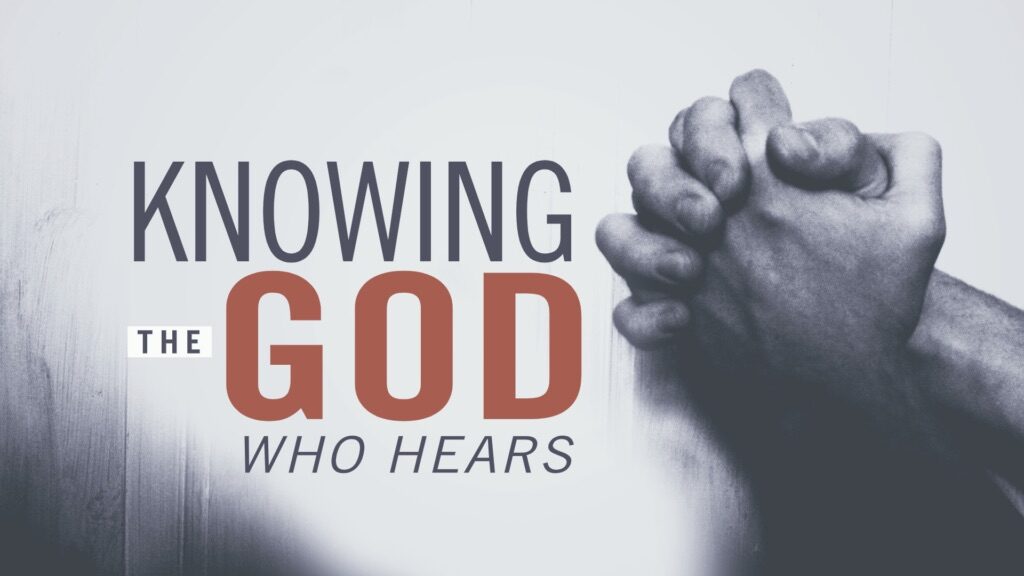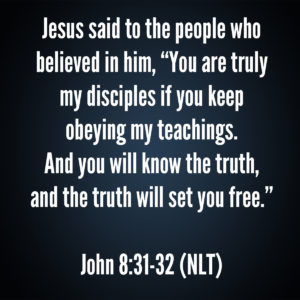Are We Really Serious When We Pray or Just Pretending? (Part 6)

When I tarted this series on prayer, I wanted to address some misconceptions about prayer, and some habits many Christian have developed that are not productive. Our misconceptions come to us from a number areas such as poor teaching, personal challenges and a lack of understanding of the character and nature of God from the scriptures.
This will be the final article in this series on prayer, although prayer and its complexities are so vast that one can write about it many times and still not cover all its dimensions. I have learned how to pray more effectively from many individuals in my 52 years as a Christian, but I would say one of the best sources for me was a woman named Ruth. Ruth was the wife of the music director at the college I attended in the early 70s. She had a greater intimacy than most, and taught students at night how to hear God’s voice and seek him earnestly. I am indebted to Ruth and others like her because they set me on a good path of how to communicate with God and how to understand God in my daily life.
One of the biggest difficulties and misconceptions on this subject is the lack of knowing God’s will. Any believer who is earnest in knowing the will of God should be honest in declaring that the very idea of knowing God’s will is difficult. This is partly because we are bombarded with so many distractions. A major issue hindering prayer is that we have so many personal choices. Sorting out what is God’s will verses our own, or the will of our pastors and leaders, is a real challenge. I think more often than not people just give God their wish list and assume they’re done.
Once again I will use a car analogy to explain the mystery and challenge of knowing the will of God. It’s easier knowing the will of God in the rear view mirror than looking through the windshield at what’s coming at us. In other words, when we look back at what has already happened we can see when the hand of God was in a decision we made and when it wasn’t. The rear view mirror shows us what God blessed and what he did not.
In the book of James he gives us an encouragement about praying. He makes it seem simple enough when he compares the Old Testament Elijah’s ability pray to our own. Simple statement, but in all too many cases it is a stretch to believe we could pray with such power and authority as to stop or start rain like Elijah did. That being said let’s look at how Elijah prayed.
James 5:17-18
Elijah was a man with a nature like ours, and he prayed earnestly that it would not rain, and it did not rain on the earth for three years and six months. Then he prayed again, and the sky poured rain and the earth produced its fruit.
James presents prayer as being simple in the same way we could say brain surgery is simple. Maybe to a brain surgeon it’s simple but for the rest of us it is utterly complex and beyond our grasp. Yet, if James is speaking the truth, which I believe he is, then we should embrace the idea that we can grow in our ability to pray with power. We just need to learn to apply ourselves like Elijah did.
When we look at the details of Elijah praying for rain to stop, and then 3 years later praying for it to start again, there is one glaring truth that stands out about how and why he prayed. It states very clearly in the Book of 1 Kings 17 and 18 that Elijah didn’t pray whatever came to his mind about a desire he had, but he prayed at the direction and desire of God. That means he prayed for things that God directed him to accomplish. Many times in scripture God puts the responsibility on humans to pray in order to unlock or release his power. But it is always under God’s will and direction. Prayer is meant to be a partnership between us and God.
1 Kings 17:1-3
Now Elijah the Tishbite, who was of the settlers of Gilead, said to Ahab, “As the LORD, the God of Israel lives, before whom I stand, surely there shall be neither dew nor rain these years, except by my word.” [2] The word of the LORD came to him, saying, “Go away from here and turn eastward, and hide yourself by the brook Cherith, which is east of the Jordan.
1 Kings 18:1-2
Now it happened after many days that the word of the LORD came to Elijah in the third year, saying, “Go, show yourself to Ahab, and I will send rain on the face of the earth.” So Elijah went to show himself to Ahab. Now the famine was severe in Samaria.
John, the last remaining apostle of the original 12 who walked with Jesus for three years, explains a truth he learned after living nearly 95 years. He states very clearly that we can have confidence “IF” we pray according to God’s will. In other words John is saying to have confidence in our prayers we must have faith in them. We all know that faith is required to please God, and when we please him he declares he will hear our prayers. The first stage of answered prayer is putting our priorities in God first, praying his kingdom come and his will be done, and then praying accordingly. Most believers often wonder at times if God is listening to their prayers. We experience doubt because we haven’t sorted out if we are praying what God will agree with.
1 John 5:14-15
Now this is the confidence that we have in Him, that if we ask anything according to His will, He hears us. [15] And if we know that He hears us, whatever we ask, we know that we have the petitions that we have asked of Him.
Look further at what John wrote in his gospel, in which he repeats what Jesus said about his motives and desires. It says he came to do the Father’s will. That it was his most important objective in his ministry. Paul the apostle said in 1 Corinthians 11:1 that we should be imitators of Christ having the same motives for living as he did. This is a huge neglected discipline in our praying.
John 4:34
Then Jesus explained: “My nourishment comes from doing the will of God, who sent me, and from finishing his work.
John 6:38
For I have come down from heaven to do the will of God who sent me, not to do what I want.
How often do we just assume we have the right motives when praying, when in fact we discover we don’t. Scripture states clearly that God is very interested in our motives. Why? Because our motives drive our desires and action. Remember that our hearts are often hard to discern and thus we need the help of the Holy Spirit to give us insight if we are praying with the right intent or if our prayers are more about self interest than God interests.
Proverbs 16:2
All a person’s ways seem pure to them, but motives are weighed by the LORD.
Let me close with this encouragement: Jesus encourages us to “ASK, SEEK and KNOCK.” He is not opposed to us asking for things in our lives that we feel we need his help in, and in fact he encourages us to do so. It is in praying we can discover our own minds and the mind of the Spirit. The more we pray the easier we can see and hear in the Spirit, and gain access to the heart of God. When we are most concerned with knowing and praying God’s will he is more than ready to hear our prayers, even when those are more of a personal nature.
Questions:
1) How often do you ask the Holy Spirit for guidance into the will of the Father? Scripture says, in the book of James, we have not because we ask not. (Jam 4:2-3)
2) Are You afraid of knowing your motives? Remember that Jesus died to set us free and give us abundant life, so knowing the true condition of our hearts will only help us not hurt us.
I hope these articles have helped you unpack your own prayer life to discover were you need to make adjustments. I also hope I’ve shown you where you are right on target. May God lead us into ever more fruitful prayer that in some way we might change the world we live in.
Pastor Dale




Leave a Comment